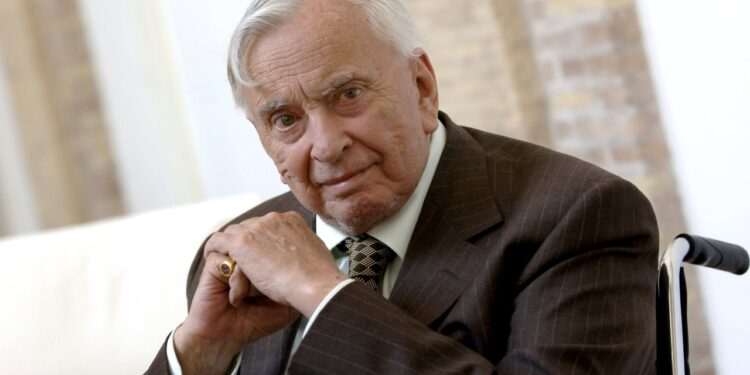Gore Vidal (1925-2012) was an American writer, intellectual, and public figure who left an indelible mark on 20th-century literature and political discourse. Born Eugene Luther Gore Vidal, he was raised in a prominent political family, which undoubtedly influenced his lifelong engagement with American politics and history.
Vidal’s literary career spanned over six decades, during which he produced a diverse body of work including novels, plays, essays, and screenplays. His writing was characterized by its sharp wit, erudition, and often controversial subject matter. Some of his most acclaimed novels include “Burr” (1973), “Myra Breckinridge” (1968), and “Lincoln” (1984).
As a historical novelist, Vidal excelled in reimagining key figures and events in American history. His “Narratives of Empire” series, comprising seven novels, offered a critical examination of the United States’ rise to global power. These works blended meticulous research with Vidal’s distinctive narrative voice, challenging conventional interpretations of American history.
Beyond fiction, Vidal was renowned for his essays and cultural criticism. His collections, such as “United States: Essays 1952-1992,” showcased his incisive commentary on literature, politics, and society. Vidal’s essays often sparked controversy due to their provocative ideas and his willingness to challenge established norms.
Vidal’s public persona was as notable as his writing. A skilled debater and television personality, he became famous for his intellectual sparring matches with conservative commentator William F. Buckley Jr. during the 1968 Democratic National Convention. These televised debates highlighted Vidal’s quick wit and his ability to articulate complex ideas in a compelling manner.
Throughout his life, Vidal was an outspoken critic of American foreign policy and what he perceived as the decline of the American empire. He frequently challenged the political establishment, advocating for progressive causes and offering biting critiques of both major political parties.
Vidal’s personal life was also a subject of public interest. Openly bisexual at a time when such frankness was rare, he became an important figure in LGBTQ+ history. His long-term relationship with Howard Austen, which lasted over five decades, was a testament to his commitment to living authentically despite societal pressures.
As a public intellectual, Vidal’s influence extended far beyond the literary world. He ran for political office twice, authored screenplays for Hollywood, and maintained friendships with figures ranging from Tennessee Williams to John F. Kennedy.
Gore Vidal’s legacy is that of a multifaceted talent who refused to be confined by conventional boundaries. His works continue to be read and debated, reflecting their enduring relevance to discussions of American identity, politics, and culture. Vidal’s sharp intellect, caustic humor, and unwavering commitment to speaking his mind ensured that he remained a significant and often polarizing figure in American letters until his death in 2012.
In an era of increasing specialization, Gore Vidal stood out as a true polymath – a novelist, essayist, playwright, and public intellectual whose diverse body of work continues to challenge and inspire readers around the world.



Recent Comments